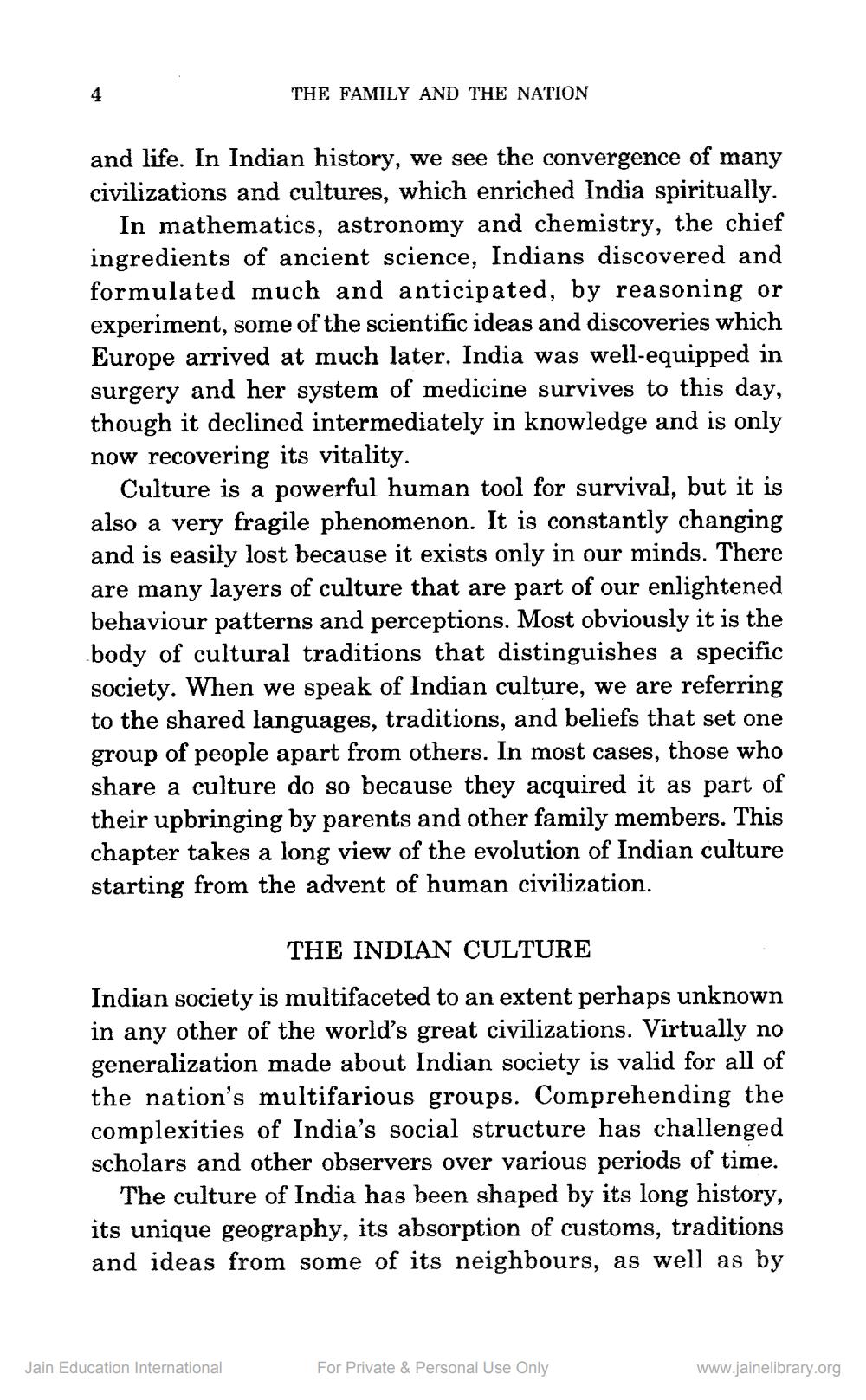________________
4
THE FAMILY AND THE NATION
and life. In Indian history, we see the convergence of many civilizations and cultures, which enriched India spiritually.
In mathematics, astronomy and chemistry, the chief ingredients of ancient science, Indians discovered and formulated much and anticipated, by reasoning or experiment, some of the scientific ideas and discoveries which Europe arrived at much later. India was well-equipped in surgery and her system of medicine survives to this day, though it declined intermediately in knowledge and is only now recovering its vitality.
Culture is a powerful human tool for survival, but it is also a very fragile phenomenon. It is constantly changing and is easily lost because it exists only in our minds. There are many layers of culture that are part of our enlightened behaviour patterns and perceptions. Most obviously it is the body of cultural traditions that distinguishes a specific society. When we speak of Indian culture, we are referring to the shared languages, traditions, and beliefs that set one group of people apart from others. In most cases, those who share a culture do so because they acquired it as part of their upbringing by parents and other family members. This chapter takes a long view of the evolution of Indian culture starting from the advent of human civilization.
THE INDIAN CULTURE
Indian society is multifaceted to an extent perhaps unknown in any other of the world's great civilizations. Virtually no generalization made about Indian society is valid for all of the nation's multifarious groups. Comprehending the complexities of India's social structure has challenged scholars and other observers over various periods of time.
The culture of India has been shaped by its long history, its unique geography, its absorption of customs, traditions and ideas from some of its neighbours, as well as by
Jain Education International
For Private & Personal Use Only
www.jainelibrary.org




